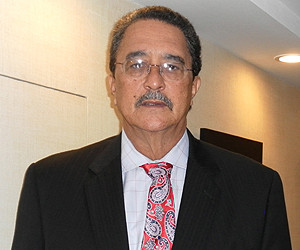St Lucia’s Prime Minister Dr Kenny Anthony has disclosed that as of January next year his country will be joining other Caribbean territories in allowing investors from across the world to buy citizenship in the country.

At the start of the new year, the Caribbean Community (Caricom) member country will begin to receive applications for what is known as a citizenship-by-investment programme, Anthony told an audience of investors in Monaco recently.
The announcement means that St Lucia will be following several other debt-ridden Caribbean territories including Dominica, St Kitts and Nevis, Antigua and Barbuda and Grenada in facilitating local citizenship for foreign investors in exchange for generous donations or investments.
The islands offer a much faster, easier and cheaper path to citizenship than countries with “investor visas” like the United States. Investor visa programmes are offered by several countries including the United States, Britain and Canada, though such arrangements can be made with some Caricom countries quicker and at a lower cost.
A foreigner can qualify for citizenship in St Kitts through a donation of US$250,000 to a fund for retired sugar workers or through an investment in local real estate of US$400,000. In Dominica, the minimum contribution is US$100,000. A similar programme in the United States allows for visas through a US$1 million investment in an American business enterprise employing more than ten persons. The investor can then make an application for permanent residence in two years or seek citizenship after a further five years. The demand in Canada is also high.
The facility has particularly suited business persons from across the world, Palestinians, for example, whose substantive nationality might place restrictions on international travel. The holder of a Dominican passport can travel to more than 50 countries without requiring a visa while a Kittian passport facilitates visa-free travel to more than 130 countries including European Union countries, a highly valued facility to nationals from countries where travel is restricted, or whose passports might otherwise be treated with suspicion.
Citizenship-by-investment has also been facilitated by conflicts in the Middle East and North Africa with wealthy businessmen taking advantage of conditions outside of those regions that better facilitate their business pursuits or an escape route for themselves and their families from escalating wars. So lucrative has the business become that a few years ago a Dubai-based company commenced the creation of a community in St Kitts where investors can purchase property and citizenship simultaneously.
The programme, however, has not been without controversy, with its critics saying that apart from undermining the integrity of national passports it is fraught with security risks. Analysts have raised the issue of the likelihood that the facility could be exploited by terrorists seeking hassle-free travel and that it is difficult to remove the risk posed by dangerous individuals.
More than ten years ago Canada imposed visa requirements on Dominica citizens following complaints that suspected criminals had travelled on the island’s passports. Five years ago, Britain had said it was considering visa requirements for Dominicans, a disclosure that led the Caricom territory to revisit its economic citizenship programme.
Following the storming of the British embassy in Teheran by Iranian students, St Kitts closed its programme to Iranians in December 2011.
If the economic benefits to the countries in the region are not lost to either their politicians or citizens, changes in the nature of international relations including the upsurge of global conflict and terrorism could lead to unforeseen difficulties. Dominicans have reportedly expressed concern over the likelihood that the tiny island could conceivably become flooded with non-nationals holding the country’s passport; a circumstance that could also have implications for Caricom territories with no cash-for-citizenship arrangements.
Despite the increasing scrutiny under which Caribbean cash-for-citizenship programmes have been coming in metropolitan countries, countries in the region keen to attract investment continue to hold them out as enticements to foreigners seeking second citizenships. Advertisements available on various regional websites are offering foreigners a “boots on the ground” opportunity to participate in the Caribbean Citizenship Summit 2016 to be staged from January 11 – 21 in Antigua, St Kitts and Nevis, Grenada and St Lucia.




